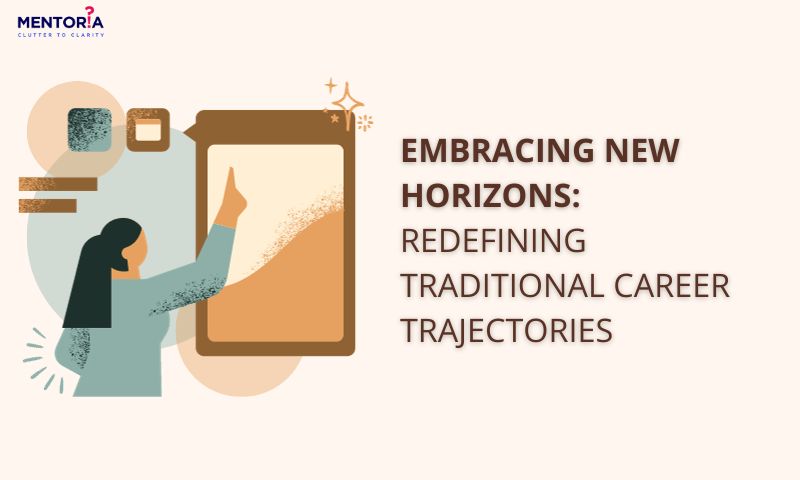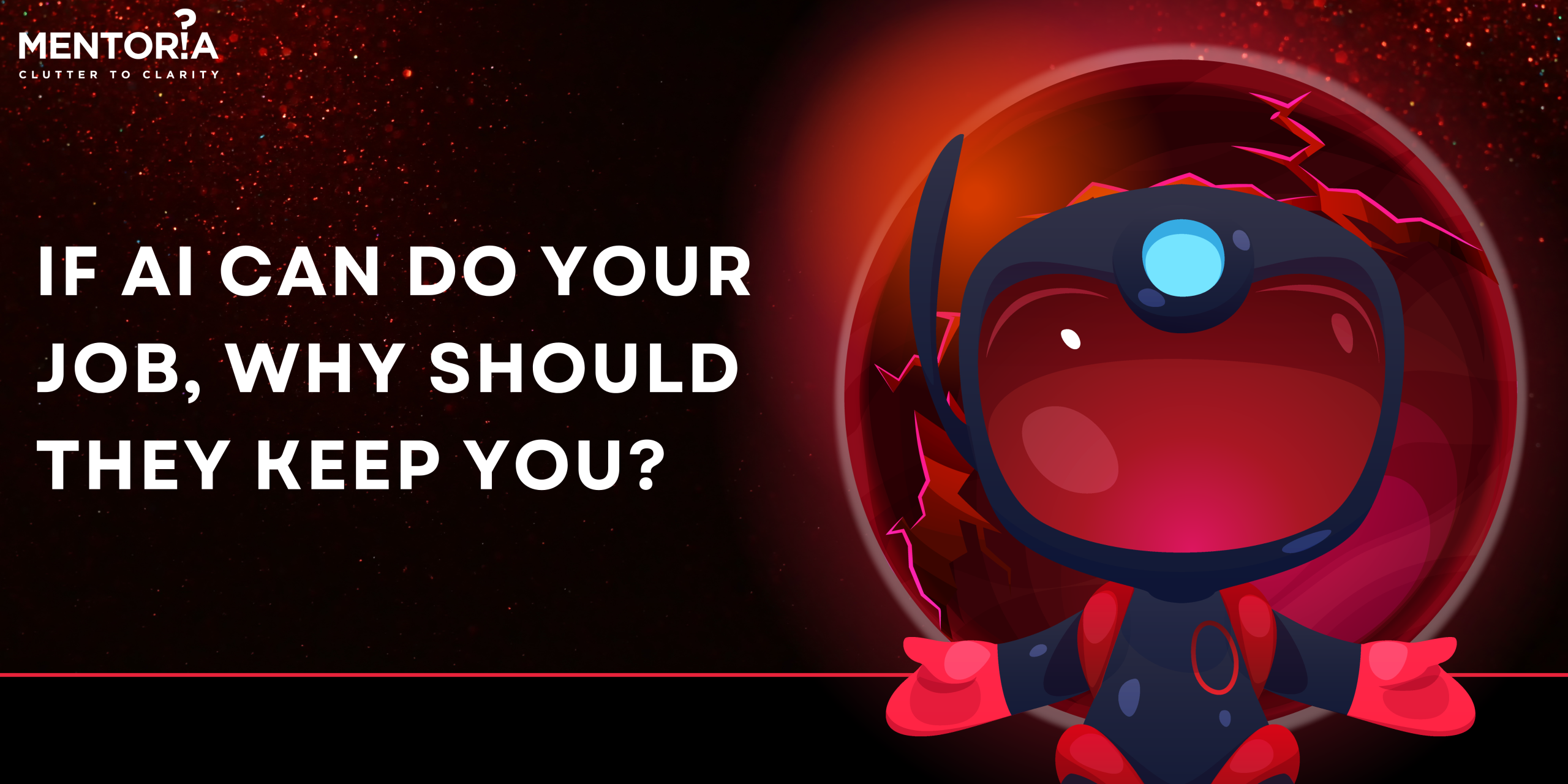Embracing New Horizons: Redefining Traditional Career Trajectories

Jump to Section
The common idea of a career used to look like this: go to college, get a job, move up the company’s ladder for 40 years, and retire peacefully. However, as the years go by, an increasing number of people choose other paths to success and satisfaction.
Nowadays, people are searching for new jobs. Others may be starting their careers and could be asking themselves whether they made the right decision. Besides, there may be numerous other people who would probably change their occupations as a result of the pandemic. If you are in this situation, know that you have a companion. It is fine for one to review his or her career and make changes as may be necessary. I encourage it.
It covers new professional paths, considers the need for change, and challenges conventional wisdom. Today’s workplace is evolving, breaking the mould for traditional career paths and challenging old ideas of what it means to succeed in life.
Today’s world is fast-paced. When we go into the issue of changing traditional career paths, it is evident that it is essential and advantageous to embrace innovation and try out other paths.
Turns And Twists: Conventional Career Pathway Development
Nowadays, most careers do not just run from point A to point B in a straight line. Many of the successful individuals I know tend to review their options regularly as they move into their careers. Most workers will change jobs twelve times over their career, and that figure is likely to increase in the future.
Surprisingly, 91% of millennials expect to switch jobs in the next three years. Some people may be horrified by those numbers, but in my career experience, I have learned that a flexible and open mind helps in achieving success. Your career today is not a destination but just the last leg of a journey.
The typical career path was often a ladder-like advancement pattern within one industry or employer. Promotions and pay raises would be used to show that employees were successful as they moved up the corporate ladder. However, this model is no longer the norm.
The Need For Adaptability In Today’s Fast-Paced World
Adaptability is a critical trait in today’s modern workforce. A flexible approach to career development is required because of rapid technological advancements, industry disruptions, and changing market preferences. To realise long-term success and sustainability, change is necessary, and it should be embraced and new opportunities explored.
Embracing Innovation: Exploring Alternative Career Paths
Instead of confining oneself to a single traditional career path, individuals are now more open to embracing innovation and exploring alternative routes. From pursuing passion projects outside the confines of the corporate world to forging their path as entrepreneurs, people are redefining what it means to have a successful career.
Breaking Stereotypes: Redefining Success and Fulfilment
The definition of success is no longer solely tied to climbing the corporate ladder. Individuals are breaking stereotypes and finding fulfilment in unconventional ways.
Beyond The Corporate World: Pursuing Passion Projects
Many individuals are turning their hobbies and passions into viable career options. Whether it’s becoming a freelance photographer, an independent chef, or a lifestyle blogger, people are finding fulfilment by monetising their passions.
By pursuing passion projects, individuals can find a sense of purpose and joy that may be lacking in traditional career paths.
Redefining Success: Prioritising Work-Life Balance
The traditional pursuit of success often comes at the cost of work-life balance. However, individuals are now placing a greater emphasis on their personal lives and finding careers that allow them to have a fulfilling personal life alongside professional success. Achieving work-life balance can lead to increased job satisfaction, improved mental health, and stronger relationships.
Exploring Entrepreneurship: Forging Your Path
Entrepreneurship is increasingly viewed as a viable career path that offers autonomy and the opportunity to pursue one’s passions. Starting a business or becoming self-employed allows individuals to take control of their career destiny and create their definition of success.
Challenging Societal Expectations: Overcoming Stigmas
Breaking free from traditional career trajectories often means challenging societal expectations and overcoming stigmas associated with non-linear paths.
Embracing Non-Linear Career Paths
Society often expects individuals to follow a linear career path, but embracing non-linear paths can lead to unique experiences and personal growth. Non-linear career paths can provide individuals with diverse skill sets and a broader perspective on different industries.
The Power Of Transferable Skills
Transferable skills are skills that can be utilised across different industries or job roles. By recognising the value of transferable skills, individuals can successfully navigate career transitions and explore diverse opportunities.
Navigating Career Transitions: Embracing Learning Opportunities
Career transitions can often be challenging and uncertain. However, they also present valuable learning opportunities and the chance for personal and professional growth. Embracing career transitions allows individuals to gain new skills, expand their network, and discover new passions.
Cultivating Multiple Expertise: The Rise Of The Portfolio Career
The traditional view of focusing on a single area of expertise is being challenged by the rise of the portfolio career.
Towards A Diverse Skill Set
The portfolio career approach involves cultivating multiple areas of expertise or pursuing multiple career paths simultaneously. By developing a diverse skill set, individuals can adapt to changing market demands and open up new opportunities.
Balancing Multiple Interests: The Art Of Multidisciplinary Work
Multidisciplinary work involves combining skills and knowledge from different fields to solve complex problems. This approach allows individuals to bring a unique perspective to their work and pursue their interests across various domains.
The Advantages Of A Varied Professional Life
A varied professional life offers individuals the opportunity to avoid monotony, challenge themselves, and continuously learn and grow. By embracing a portfolio career, individuals can shape their professional narratives and find fulfilment in different areas.
Technological Disruption And Its Implications For Traditional Jobs
Automation And Job Displacement
Automation and artificial intelligence are new technologies that can change the world of work. Jobs that can be replaced using technology are in danger, and to remain relevant in the fast-changing labour market, people should learn some other skills.
Embracing Tech Skills: Remaining Relevant In The Age Of Digital
The importance of having tech skills in the digital era cuts across different sectors. Such individuals with skills in coding, data analysis, or digital marketing have an edge in the job market.
The Rise Of Remote Work: Expanding Global Opportunities
Remote work has become popular and has given people the opportunity to work from wherever in the world. The shift creates opportunities for international collaboration and allows individuals to find employment regardless of where they reside.
Career Development In The Gig Economy
Gig thrift refers to demand labour marked by short-term contractual engagements or freelance work.
The Gig Economy: An Overview
The gig economy refers to a flexible labour market where employers work on short contracts. Gig workers have the flexibility to choose their projects and working hours, which leads to more autonomy and diversity in their careers.
Flexibility And Autonomy: Benefits And Challenges
The gig economy permits a more flexible approach to work and creates a balance between work and life. Nevertheless, gig workers may find job security and benefits lacking; thus, they will be forced to deal with economic uncertainties and consider the future.
Embracing Side Hustles: Paving Your Path To Success
Side hustles have become more common than before, and many people are looking for side jobs to add extra income for themselves. Side hustles provide people a chance to pursue their passions, develop business ideas, and augment their income.
Lifelong Education And Its Importance
Lifelong education is important to keep learning to succeed in this highly competitive employment world of today.
The Concept Of Continuous Education And Skill Development
lifelong learning implies the pursuit of learning opportunities concerning education and skill development throughout the entire career. Keeping abreast of industry trends and acquiring new skills can enable one to adapt to changing job needs.
Combating Obsolescence: Adapting To Changing Industries
Industries are constantly evolving, and one has to be flexible enough not to become irrelevant. Being marketable will only be possible with continuous learning and an open mind to new technologies and trends in the industry.
Online Learning Platforms
Online learning platforms and career advancement professional development now rely on online learning platforms. These platforms like Coursera, Great learning, udemy etc. have a variety of courses and certifications that people can get from them in an easier way and at their own will. The education system and job training should be responsive to the needs of the changing workforce.
Rethinking Traditional Education Systems
The Gap Between Academia And Industry Demands
There is a gap between what is taught in academia and what is needed by industries. To fill the gap between theory and practice, real-life situations and the needed skills must be included in school curricula.
Modernising Education: Emphasising Practical Skills
In the present-day education system, more weight should be assigned to the teaching of necessary job skills. Through hands-on experiences, internships, and working with industry professionals, we can bridge the theoretical-practical gap.
Promoting Entrepreneurial Mindset: Encouraging Innovation
The entrepreneurial spirit should be inculcated in educational institutions through creativity and innovation. Providing entrepreneurial skills from childhood prepares people to survive in a changing business environment.
Upskilling And Reskilling: Meeting The Needs Of The Future
Adapting to the future workforce requires a focus on upskilling and reskilling.
Identifying Emerging Skill Gaps
The rapid evolution of technology and industry demands often creates new skill gaps. Identifying these gaps and providing opportunities for individuals to acquire the necessary skills is crucial. Identifying these emerging skill gaps is key to staying ahead in a rapidly changing job market. Upskilling and reskilling can ensure that professionals remain relevant and adaptable. By investing in continuous learning and acquiring new skills, individuals can expand their career options and stay competitive. Embracing the ever-evolving nature of industries requires us to be proactive in developing the skills required to meet the needs of the future.
Transforming Careers With Personalised Growth Strategies
As traditional career trajectories continue to evolve, it’s essential to embrace new horizons and rethink conventional notions of success. By expanding the definition of fulfilment, challenging societal expectations, and adapting to the digital age, individuals can forge their paths toward meaningful and successful careers. Embracing lifelong learning and redefining education systems are also crucial to meeting the needs of the ever-changing job market. It’s time to break free from the constraints of traditional career paths and embrace the endless possibilities that lie ahead. In this regard, Mentoria’s counsellors will assess your personality and abilities to redefine traditional career trajectories, identifying your strengths and areas for development. So don’t wait, and let’s talk.











